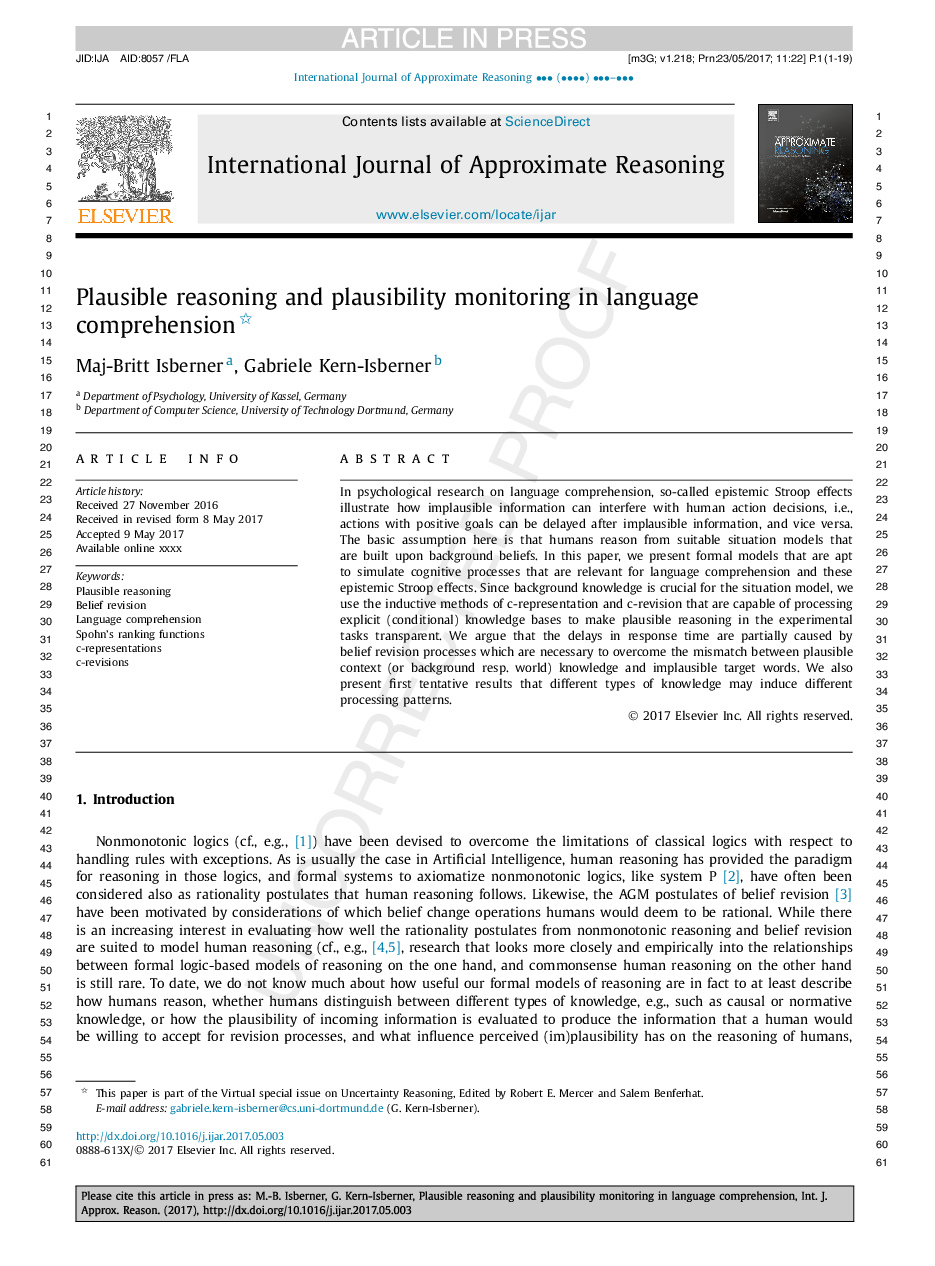| Article ID | Journal | Published Year | Pages | File Type |
|---|---|---|---|---|
| 4945255 | International Journal of Approximate Reasoning | 2017 | 19 Pages |
Abstract
In psychological research on language comprehension, so-called epistemic Stroop effects illustrate how implausible information can interfere with human action decisions, i.e., actions with positive goals can be delayed after implausible information, and vice versa. The basic assumption here is that humans reason from suitable situation models that are built upon background beliefs. In this paper, we present formal models that are apt to simulate cognitive processes that are relevant for language comprehension and these epistemic Stroop effects. Since background knowledge is crucial for the situation model, we use the inductive methods of c-representation and c-revision that are capable of processing explicit (conditional) knowledge bases to make plausible reasoning in the experimental tasks transparent. We argue that the delays in response time are partially caused by belief revision processes which are necessary to overcome the mismatch between plausible context (or background resp. world) knowledge and implausible target words. We also present first tentative results that different types of knowledge may induce different processing patterns.
Related Topics
Physical Sciences and Engineering
Computer Science
Artificial Intelligence
Authors
Maj-Britt Isberner, Gabriele Kern-Isberner,
